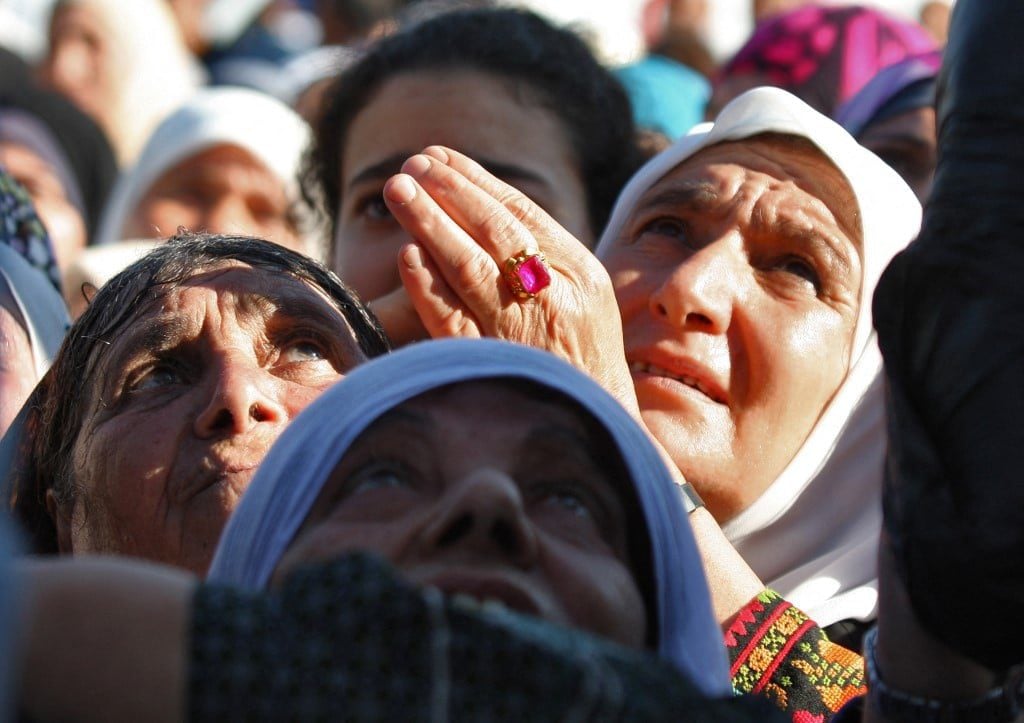
Majed Kayali
There is a deep legitimacy in the necessity to criticize the Palestinian leadership’s approach to political action. The same applies to the way by which this leadership manages the Palestinian status quo.
Politically, this leadership accepted depending on the negotiation option alone, and this is different from being forced to rely on negotiations. This dependence leans on a closed political mindset that excludes other political options and alternatives. The Palestinian leadership continues to follow the same political rules. The Palestinian leadership believes that this mentality preserves the status of its political class and safeguards its interests. Such a mindset became highly sensitive when the political class confused interests with that of the people. Moreover, this mindset leans on an illusion or a false awareness. According to this mindset, Israel may provide the Palestinians – through negotiations only – with what they want for free, despite the imbalance of power and international and regional facts in Israel’s favor!
The Palestinian leadership still sticks to this mindset even though 27 years have passed since starting the settlement process with Oslo Accords. It follows this approach while knowing that Israel does everything to devoid the two-state solution of its political, geographical, and human rights contents. It is a fact that Palestinian President Mahmoud Abbas himself has repeatedly recognized. It even led to severing ties with Israel and halting security coordination in the middle of last month.
The problem with this mentality is that it does not see, or does not want to see, the negative transitions surrounding it. The same applies to the variables around it. The Palestinian national movement has been drained. The list of reasons includes Israel, differences, conflicts, and divisions within the movement itself. Likewise, the conditions of the Palestinian people have become very complicated. Nowadays, we fear to talk about the emergence of many Palestinian communities, let alone that we have different political agendas and references. Such a development happens in line with the circumstances in which the Palestinians live. They currently do not have one single symbolic, referential, and institutional scenario. We know that there is a division between the West Bank and Gaza. The same applies to Fatah and Hamas. In addition, two more communities do not have the same perception about national rights: refugees and residents of the occupied territories. As for the Palestinian cause, the priorities are no longer clear nor settled. There is talk about lifting the siege on the Gaza Strip and reaching internal reconciliation. There is talk about ending the settlement process, stopping attempts to Judaizing Jerusalem, or holding elections. There is also a discrepancy regarding the priority of the Palestinian state or the right of return. The same applies to deciding if we have a liberation project or an Islamic one.
Internationally, there are significant shifts in its perceptions in favor of the Palestinian cause. Nowadays, the Palestinian cause imposes itself as a just cause. Interestingly, those shifts happen in a world that seems preoccupied with the repercussions of the global economic crisis, environmental disasters, terrorism, the Corona pandemic, and the turmoil in Yemen, Iraq, Syria, Lebanon, and Libya. In the same context, the Palestinian cause imposes itself as an entry point for solving other regional crises, including drying up terrorist motives. Due to its arrogant policies, we witnessed that the Western world – including some circles in the US – started to see Israel for what it is, as a colonial, racist, and religious state. For the Western world, Israel turns into a burden on the stability of the Middle East. Moreover, this state is a factor that disturbs the West’s status and its interests in this region.
One of the top priorities that the Palestinian leadership should consider is managing the available and possible resources properly. However, this leadership does not work accordingly. It dedicates its efforts to keep being a ruling authority, even if it has become partial (in the West Bank) and dependent on Israeli dictates. The Palestinian Authority seems obsessed with consolidating its status as a dominant reference in the Palestinian cause, even if this clears the political meaning of the national liberation cause and isolates its societal sphere (all Palestinians).
Nowadays, the Palestinian sphere passes through a phase that can be called the loss of the project. When the project is lost, all things built on it become meaningless or unnecessary, including frameworks, tools, and means of work. Transforming the national liberation project into an authority one is among the manifestations of this loss (West Bank, Gaza, Fatah, and Hamas). Another one is overestimating the factors of difference, conflict, and division, instead of directing efforts to fight the occupation. In place of pluralism and diversity, unilateralism and totalitarianism spread in the Palestinian society. For example, the Palestinian president has all the powers in his own hands (executive, legislative and judicial). He is currently the chairman of PLO, the Palestinian Authority, and Fatah. Whether there will be elections or not, many questions should come into mind: What is the need for authorities in the West Bank or Gaza if the Palestinian national project is lost and absent from its social sphere? What is the use of the factions?
DISCLAIMER
The opinions expressed in this publication are those of our bloggers. They do not purport to reflect the opinions or views of Fanack or its Board of Editors.


